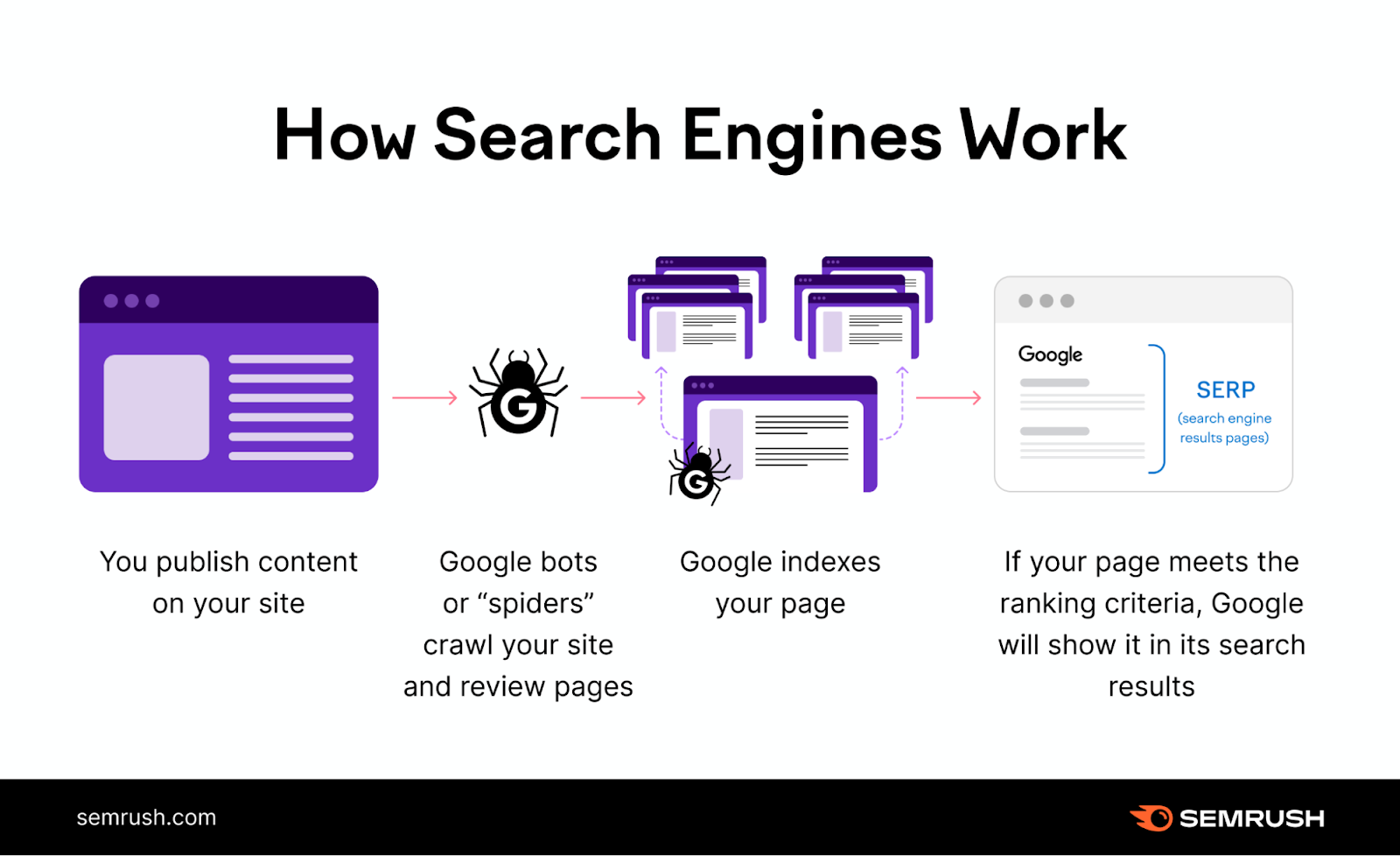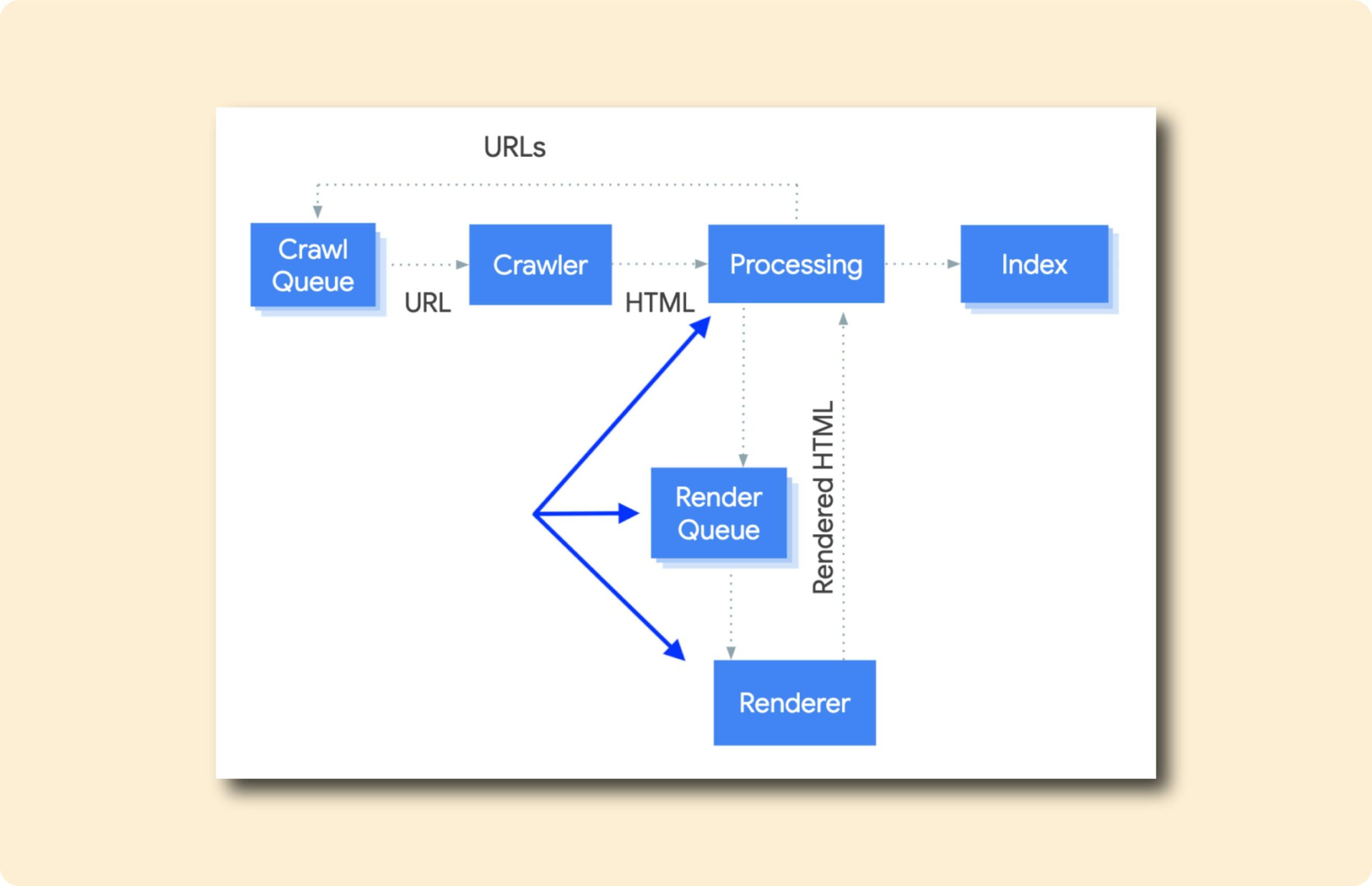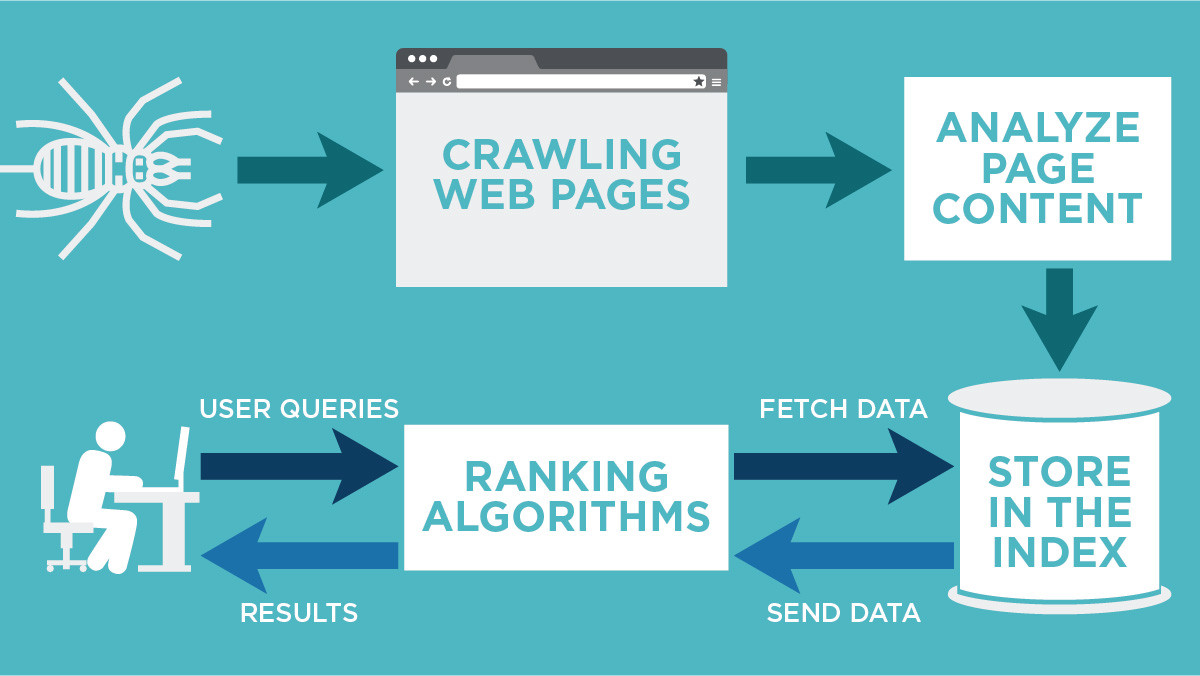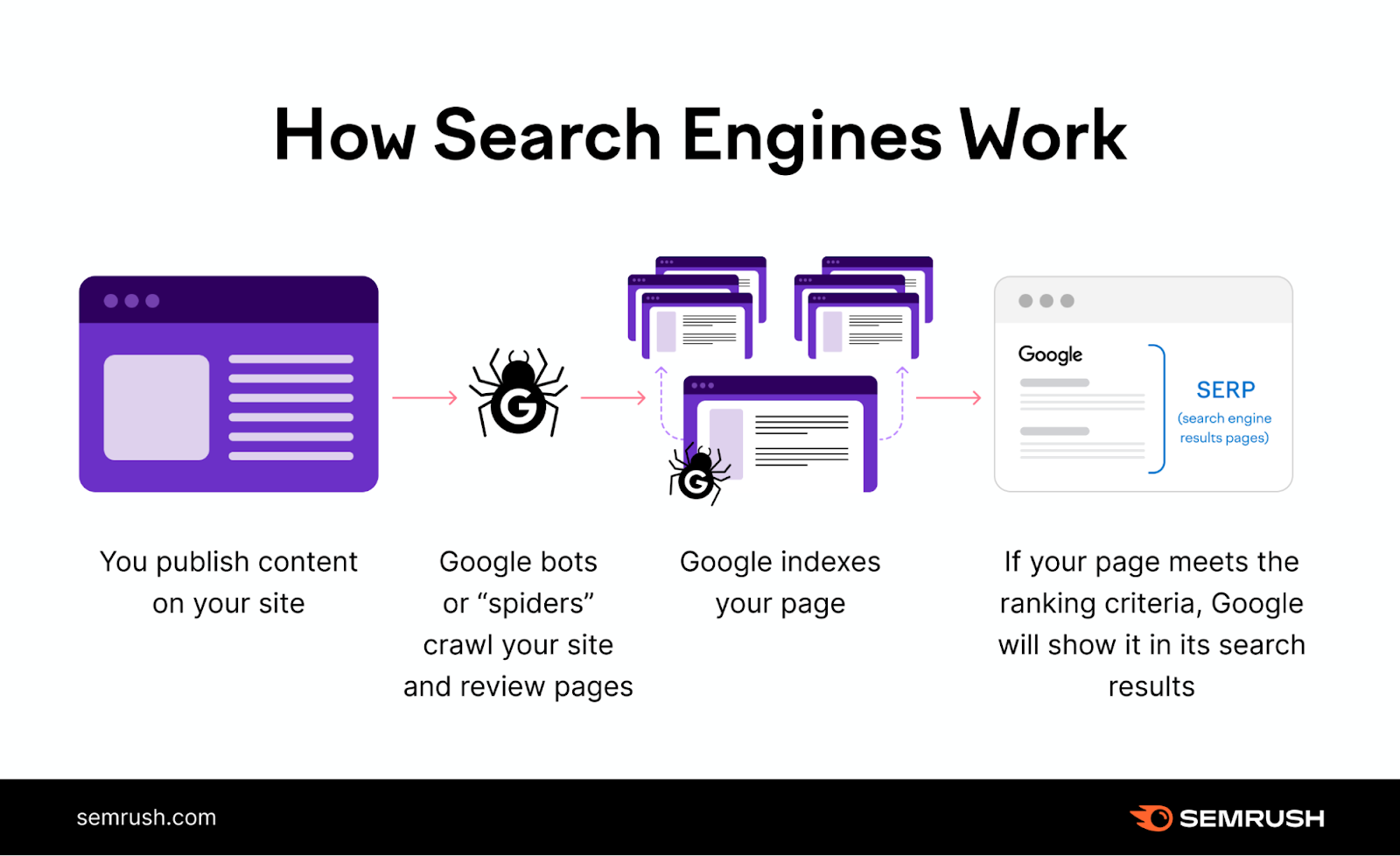In the intricate landscape of search engine optimization, understanding how your site gets noticed can make all the difference. One critical component of this visibility is indexing—the process by which search engines like Google catalog web pages to display pertinent results to user queries. This article delves into the pivotal role of indexing in determining your website’s Google rankings. We’ll explore how timely and proper indexing can propel your page to the top of search results, ensuring that your content reaches the right audience. Join us as we uncover the strategies and mechanics behind effective indexing for better rankings.
Understanding the Impact of Indexing on Google Rankings
Indexing is a critical process that can substantially influence your website’s visibility and position on Google search results. It involves Google’s crawler discovering your website pages and adding them to the search engine’s database. Let’s delve into how this impacts your site’s rankings on Google.
The Role of Indexing in SEO
Indexing serves as the bedrock for SEO. Without being indexed, a webpage does not exist in Google’s search ecosystem, making it impossible for users to find it through search queries. Googlebot, Google’s web crawler, scours the internet for new content, determining its relevance and value before sending it to the index. The more efficiently a page is indexed, the quicker it can appear in search results, which directly correlates with higher visibility and improved SEO strategy.
How Googlebot Prioritizes Pages for Indexing
Googlebot uses a variety of factors to prioritize which pages to index. Freshness of content, relevance of information, and presence of backlinks are all considered when determining priority. Crawl Budget, or the number of pages Googlebot will crawl on your site, also plays a significant role. Factors such as your website’s structure and the site’s overall authority can influence how frequently and thoroughly your site is crawled and indexed.
Common Indexing Issues and Their Impact on Rankings
Several common issues can impede proper indexing. Duplicate content, blocking critical resources with robots.txt, and poor site structure can cause pages to be skipped. These problems can lead to lower rankings since fewer pages in the index mean fewer opportunities for your site to appear in search results. Using Google Search Console, webmasters can diagnose and resolve indexing problems that may be affecting their site’s performance.
Improving Indexation to Boost Your Rankings
Improving indexation starts with the basics: ensuring your site is structured effectively and free of errors that hinder Googlebot’s efforts. Implementing a sitemap, optimizing load speeds, and ensuring all content is accessible for crawling can enhance indexation. Frequent content updates and using internal linking effectively can also improve the chances of a page being indexed quickly and prioritized for rankings.
Tools and Techniques to Monitor Indexing
There are several tools and techniques available to monitor and improve site indexing. Google Search Console offers insights into which pages have been indexed, as well as any errors Googlebot encountered. Third-party tools like Screaming Frog and Ahrefs can provide a deeper analysis of crawlability and spotting site architecture issues. Regular audits using these tools can prevent indexing obstacles and refine your SEO practices for enhanced search presence.
| Factor | Impact on Indexing and Rankings |
|---|---|
| Crawl Budget | Determines the frequency and depth of site indexing |
| Site Structure | Influences crawling efficiency and ease of content discovery |
| Content Freshness | Affects the prioritization of pages during crawling |
| Use of Sitemaps | Enhances Google’s ability to discover all site pages |
| Robots.txt Settings | Can inadvertently block critical resources from being indexed |
How important is Google indexing?

Google indexing is a crucial process that determines how a website’s content is organized and retrieved by search engines. This process is vital for ensuring a website’s visibility, accessibility, and success in the digital landscape.
Why Google Indexing Matters
Google indexing is vital for several reasons that are fundamental in the digital landscape:
- Visibility: Indexed pages are more likely to appear in search results, increasing the likelihood that users will discover the website.
- Ranking: Properly indexed pages contribute to the ranking of a website on Google, enhancing its position relative to other sites.
- Traffic: Sites that are indexed efficiently can benefit from increased traffic, which can lead to higher engagement and potential conversions.
Factors Influencing Google Indexing
Several elements can affect how well Google indexes a site:
- Quality Content: Google tends to prioritize high-quality, original, and relevant content which fosters frequent indexing.
- Use of Sitemaps: Providing an up-to-date sitemap to Google can ensure that all pages are recognized and indexed correctly.
- Website Performance: Fast-loading, mobile-friendly websites can be indexed more favorably because they deliver a better user experience.
Consequences of Poor Google Indexing
Not being properly indexed by Google can have multiple negative impacts:
- Reduced Visibility: Pages that are not indexed do not appear in search results, leading to lower discovery rates by users.
- Decline in Traffic: A lack of visibility can directly affect the amount of traffic a website receives, impacting overall site performance.
- Competitive Disadvantage: If competitors’ pages are better indexed, they are more likely to attract traffic that might otherwise visit your site.
What affects Google rankings?

Quality of Content
The quality of content is a critical factor affecting Google rankings. High-quality content not only engages visitors but also helps establish credibility and authority. Here’s how it affects rankings:
- Relevance: Content that effectively addresses user queries is more likely to rank higher.
- Originality: Unique content that offers fresh perspectives or insights is favored by Google.
- Depth: Detailed articles that thoroughly cover a topic are seen as more valuable and informative.
Backlinks
Backlinks are essential for increasing a site’s authority and trustworthiness on Google. They serve as endorsements of a site’s quality and relevance. The importance of backlinks includes:
- Quality Over Quantity: Links from reputable and authoritative sites are more beneficial than numerous links from lesser-known sites.
- Relevance: Links from sites related to your niche are more impactful.
- Diversity: A varied link profile, consisting of different sources and types of links, appears more natural and trustworthy to Google.
Technical SEO
Technical SEO ensures that a website is optimized for search engines at a structural level. Proper technical SEO plays a vital role in Google rankings through:
- Site Speed: Faster loading times improve user experience and can positively impact rankings.
- Mobile-Friendliness: As more users access the web via mobile devices, sites optimized for mobile usability have an edge.
- Secure Connections: HTTPS is a ranking factor, and sites that are secure may rank better than those that are not.
Does indexing affect SEO?

Yes, indexing significantly affects SEO as it determines whether a website’s pages are discovered and retrievable by search engines. Proper indexing can enhance visibility and ensure content appears in search results.
How Indexing Works and Its Importance
Indexing is a process where search engines organize information before a search to provide fast and accurate responses. Understanding this helps recognize its influence on SEO:
- Crawling: Search engines use bots to explore the internet, following links to discover new pages.
- Analyzing: The discovered pages are evaluated based on keywords, content quality, and relevance.
- Storing: Relevant pages are stored in the search engine’s index, ready to be retrieved when users make a query.
The Impact of Good Indexing Practices on SEO
Proper indexing ensures that pages are visible in search engine results, which affects the site’s traffic and authority. Benefits of good indexing practices include:
- Increased Visibility: Ensures all website pages have the potential to appear in search results.
- Rank Potential: Pages must be indexed to compete for top positions in search rankings.
- Structured Data Utilization: Enhances indexing by giving search engines context about pages.
Common Indexing Issues and How to Resolve Them
Issues in indexing can hinder a website’s SEO performance, but identifying and fixing them can improve search engine rankings:
- Duplicate Content: Ensure each page offers unique content to avoid indexing issues.
- Crawling Errors: Use tools like Google Search Console to identify and resolve crawling issues.
- Noindex Tags: Verify that no pages are mistakenly marked with noindex tags unless intentional.
What happens during Google's indexation process?

Crawling: The First Step in Google’s Indexation Process
During the crawling phase, Google uses automated bots known as Googlebots to explore the web and discover new or updated content. This process is critical for making sure all necessary web pages are listed in Google’s index.
- Discovery: Google scans the internet to discover new URLs through links on existing pages or submitted sitemaps.
- Prioritization: Google evaluates pages based on importance and frequency of changes using various ranking signals to decide which ones to crawl first.
- Fetching: The Googlebot accesses the page, rendering its HTML and other resources to understand the content fully.
Indexing: Analyzing and Storing Information
Once a page is crawled, the next step is indexing, where Google tries to understand and store the content of the page.
- Content Parsing: The page content is analyzed; text, images, and other elements are scrutinized to determine their relevance and value.
- Structure Understanding: Google assesses the layout and metadata like titles and descriptions to understand context and content theme.
- Categorization: Key topics and keywords from the page are identified and organized in Google’s index so they can be retrieved during a search inquiry.
Ranking: Determining Page Visibility
Ranking involves sorting the indexed pages by relevance to present the best results for a given search query based on various algorithms and signals.
- Relevance Determination: Pages are evaluated against search queries to ensure alignment with user intent and content purpose.
- Signal Weighing: Factors like page speed, mobile friendliness, and keyword optimization are considered to assign a rank.
- Continuous Re-evaluation: Algorithms are constantly updated, and results refined to improve search experience and relevance over time.
Frequently Asked Questions
What is indexing in the context of Google rankings?
Indexing is the process by which Google collects, parses, and stores data for fast retrieval when users perform searches. When Google’s web crawlers visit a website, they analyze the page’s content and metadata. This information is then captured and entered into Google’s index, which is essentially a large database of all the web pages Google knows about. Proper indexing ensures that your site can be found when relevant searches are performed. If your site isn’t indexed, it will not appear in Google’s search results, affecting your visibility and traffic.
How does indexing impact my website’s ranking on Google?
The impact of indexing on your Google rankings is direct and significant. If your site is not indexed, it simply cannot rank because Google isn’t aware of its existence. On the other hand, having your site indexed doesn’t guarantee a high ranking. The quality of the indexed content, including its relevance to searched keywords, the number and quality of backlinks, and user engagement metrics like click-through rate and bounce rate, all contribute to how well your site can rank. Thus, while indexing is the first step, optimizing for SEO best practices is crucial for achieving higher rankings.
What factors can affect how quickly my site is indexed by Google?
Several factors influence the speed at which Google indexes a site. Website structure and organizational clarity can facilitate quicker indexing. A site that is easily navigable encourages efficient crawling. Regularly updating your content, which signals to Google that your site is active, can also expedite indexing. Additionally, creating and submitting an XML sitemap can provide Google with a roadmap to your site’s structure. Utilizing inbound backlinks from reputable sites can not only improve your ranking but also boost indexing speed, as Google’s crawlers frequently visit high-authority sites.
How can I check if my pages are indexed and what should I do if they are not?
You can check if your pages are indexed using Google Search Console. By entering the exact URL into the URL inspection tool, you can see whether a particular page is indexed by Google. If your pages are not indexed, you may need to troubleshoot potential issues such as robots.txt blocking, missing sitemaps, or pages with low-quality content that Google may deem unworthy of indexing. Rectifying these issues, along with regularly publishing unique, high-quality content, should improve indexation status. Regular checks and ensuring your site meets Google’s webmaster guidelines can enhance visibility and ranking potential.

